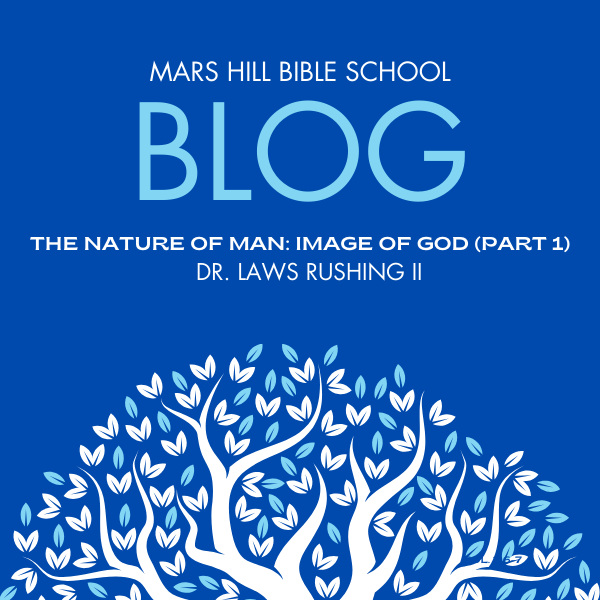MHBS Blog
Nature of Man: Image of God (Part I)

God said, “Let Us make man in Our image, according to Our likeness.” The image of God distinguishes humanity from other living entities and gives human life an increased moral status and dignity. (Genesis 9:6) “Whoever sheds man’s blood, By man his blood shall be shed; For in the image of God, He made man.” The basis of all human rights, justice, and redemption emerges from the transcendent value intrinsic to humanity’s nature through God’s special creation and image bearing.
We can understand the “image of God” through a few exercises, such as the differences between us and animals, characteristics of human beings, and what the Bible reveals about our nature and aptitudes. Our image bearing doesn’t make us divine in the same sense as God because we are finite and limited in our being, whereas God is being itself. God has characteristics and attributes which are exclusive and distinctive as that “which no greater can be conceived.”
Humanity is composed of a spiritual nature called a soul or mind. Many philosophers have come to this conclusion rationally from Socrates to Descartes concerning the mind or soul/body duality. Philosophers of the mind and neuroscientists continue to dialog and debate the mysteries of consciousness which is commonly called the “hard problem” of science.
Mental entities such as thoughts and feelings are not located in any particular space or have physical qualities like material objects or events. Philosophers J. P. Moreland and William Lane Craig detail several characteristics for the mind as mental entities are self-presenting, have private accessibility, incorrigible or individually factual, and capable of intentionality, none of these activities are possible in a material sense. This means that the inter-relationship of the mind and brain can be causal and connected but not identical. (Craig 2003)
We see the existence of a soul more importantly because of the Bible. The current physical body is temporal and only a part of the whole constitution of a human being. Verses in the Old Testament indicate the soul and body dichotomy (Genesis 35:18, I Kings 17:21, Isaiah 53:12). The book of Ecclesiastes gives this description, “Then the dust will return to the earth as it was, And the spirit will return to God who gave it.”
The New Testament makes mention of the soul leaving the body in death. (Luke 12:20, John 19:30, Acts 7:59).
(James 2:26) “For as the body without the spirit is dead.” Jesus also warned, “And do not fear those who kill the body but cannot kill the soul. But rather fear Him who is able to destroy both soul and body in hell.”
The soul is indicated to survive after the body’s death which is characterized as a tent.
(II Corinthians 5:1-8) “For we know that if our earthly house, this tent, is destroyed, we have a building from God, a house not made with hands, eternal in the heavens. For in this we groan, earnestly desiring to be clothed with our habitation which is from heaven, if indeed, having been clothed, we shall not be found naked. For we who are in this tent groan, being burdened, not because we want to be unclothed, but further clothed, that mortality may be swallowed up by life. Now He who has prepared us for this very thing is God, who also has given us the Spirit as a guarantee. So we are always confident, knowing that while we are at home in the body we are absent from the Lord. For we walk by faith, not by sight. We are confident, yes, well pleased rather to be absent from the body and to be present with the Lord.”
Some verses even indicate that humanity is composed of trichotomy: body, soul, and spirit. Some debate whether these verses are redundant in the spiritual portrayal or elucidating something different like an animating soul in the likeness to animal life. (Hebrews 4:12) “For the word of God is living and powerful, and sharper than any two-edged sword, piercing even to the division of soul and spirit, and of joints and marrow, and is a discerner of the thoughts and intents of the heart.” (I Thessalonians 5: 23) “Now may the God of peace Himself sanctify you completely; and may your whole spirit, soul, and body be preserved blameless at the coming of our Lord Jesus Christ.”
No matter the interpretation of these verses, man is a physical and spiritual composition.
The great writer and poet William Faulkner summarized in his Nobel Prize speech, “I believe that man will not merely endure, he will prevail. He is immortal not because he alone among creatures has an inexhaustible voice but because he has a soul, a spirit capable of compassion and sacrifice and endurance.”


.png)
